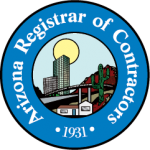The day after his Cross of Gold speech, Bryan won the Democratic presidential nomination; he also won the support of the Populist and National Silver parties. In 1904, Taft took on the role of secretary of war in the administration read more, William Randolph Hearst (1863-1951) launched his career by taking charge of his fathers struggling newspaper the San Francisco Examiner in 1887. Writer Edgar Lee Masters, who witnessed Bryan's speech, remembered, "Suddenly I saw a man spring up from his seat among the delegates and with the agility and swiftness of an eager boxer hurry to the speaker's rostrum. Bryan was quoting from an 1878 speech by Cleveland's Treasury Secretary, Hill remained neutral in the campaign, despite urgings to go over to the Gold Democrats, seeking to preserve his control of the state Democratic party, and also hoping (in vain) to secure his own re-election by the legislature. [58] He began: I would be presumptuous, indeed, to present myself against the distinguished gentlemen to whom you have listened if this were a mere measuring of abilities; but this is not a contest between persons. [146] The election of 1896 marked a transition as the concerns of the rural population became secondary to those of the urban; according to Stanley Jones, "the Democratic Party reacted with less sensitivity than the Republicans to the hopes and fears of the new voters which the new age was producing". At the outset of the 1890s, with drought destroying the livelihoods of many American farmers, the Peoples Party (also known as the Populist Party) was growing as a force in U.S. politics by appealing to small farmers, shopkeepers and other less wealthy voters. At home, he took a short rest, and was visited by Senator Jones to discuss plans for the campaign. [10], In May 1894, Bryan announced he would not seek re-election to the House of Representatives, feeling the incessant need to raise money to campaign in a marginal district was inhibiting his political career. Through the almost three decades before his death in 1925, he was ever present on political platform and speaking circuit, fighting first for silver, and then for other causes. Many of the elements of the speech had appeared in prior Bryan addresses. Bryan's biographer, Paolo Coletta, suggests that Bryan may have played a part in inciting the silver men's departure; he was in close contact with Silver Republicans such as Teller and South Dakota Senator Richard Pettigrew. [41], Bryan's Nebraska delegation left Lincoln by train on July 5. Why did William Jennings Bryan lose the 1896 election? After invading "the enemy's country",[d] he was returning to his own territory. They hoped the Democrats either would not endorse silver in their platform or if they did, that the Democratic candidate would be someone who could be painted as weak on silver. Bryan went to the Democratic convention in Chicago as an undeclared candidate, whom the press had given only a small chance of becoming the Democratic nominee. [115], Bryan's plan for victory was to undertake a strenuous train tour, bringing his message to the people. A devout Protestant, his populist rhetoric and policies earned him the nickname the Great Commoner. In his later years, Bryan campaigned against the teaching of evolution in public schools, culminating with his leading role in the Scopes Trial. (Credit: Bettmann Archive/Getty Images). For a more detailed treatment of the background to the currency question, see, For further information on the procedures of American political conventions, see, William Jennings Bryan 1896 presidential campaign, Attacks and Gold Democrats; the final days. Bryan did not; Senator Jones (as the new Democratic National Committee chairman, in charge of the campaign) stated, "Mr. Sewall, will, of course, remain on the ticket, and Mr. Watson can do what he likes. "[63] He continued: Upon which side will the Democratic Party fight; upon the side of "the idle holders of idle capital" or upon the side of "the struggling masses"? [f] McKinley even won the urban vote in Nebraska. Why was the 1896 election devastating for Populist movement? Much of the blizzard of paper the Republican campaign was able to pay for concentrated on this area/ By September, this had its effect as silver sentiment began to fade. [90], Following his nomination in June, McKinley's team had believed that the election would be fought on the issue of the protective tariff. She became his wife, and was his principal assistant throughout his career. Biographies of the Secretaries of State: William Jennings Bryan (1860-1925). While speaking in McKinley's hometown of Canton, Ohio, Bryan yielded to impulse and called upon his rival at his home with Congressman Bland; the Republican candidate and his wife, somewhat startled, received the two men hospitably in a scene Williams calls, "surely bizarre. [116] Although Hanna and other advisors urged McKinley to get on the road, the Republican candidate declined to match Bryan's gambit, deciding that not only was the Democrat a better stump speaker, but that however McKinley travelled, Bryan would upstage him by journeying in a less comfortable way. The proposed platform was pro-silver; Senator Hill had offered an amendment backing the gold standard, which had been defeated by committee vote. To those who cling to the gold standard, he declared in closing: You shall not press down upon the brow of labor this crown of thorns, you shall not crucify mankind upon a cross of gold.. See. "[142] By the end of 1896, Bryan had published his account of the campaign, The First Battle. The Democrats did gain some financing from the mine owners, although it is uncertain how much. On April 22, 1893, the amount of gold in the Treasury dropped below $100million for the first time since 1879, adding to the unease. According to Stanley Jones, The period of this tour, in the return from New York to Lincoln, was the high point of the Bryan campaign. By the 1930s, he had built the nations largest media empire, including more than two dozen newspapers in major cities nationwide, read more, Populism is a style of politics used to mobilize mass movements against ruling powers. "[16], Even as Cleveland took office as president in March 1893, there were signs of an economic decline. There was little advantage to the Democratic Party in nominating a candidate from Nebraska, a state small in population that had never voted for a Democrat. His program of prosperity through free silver struck an emotional chord with the American people in a way that McKinley's protective tariff did not. Department of State: Office of the Historian. The dark horse is in his stall, feasting on the oats of hope and political straws. Illinois Senator John M. Palmer was eager to be the presidential candidate, and the convention nominated him with Kentucky's Simon Bolivar Buckner as his running mate. Their enthusiasm at the unrehearsed rear platform appearances and in the formal speeches was spontaneous and contagious. I don't know but its effect will be to nominate him. He supported many Populist policies. "[145] Bryan's own explanation was brief: "I have borne the sins of Grover Cleveland. Hayes and Harrison both won in the electoral college but lost the popular vote, for example. The man who is employed for wages is as much a business man as his employer; the attorney in a country town is as much a business man as the corporation counsel in a great metropolis; the merchant at the cross-roads store is as much a business man as the merchant of New York; the farmer who goes forth in the morning and toils all day, who begins in spring and toils all summer, and who by the application of brain and muscle to the natural resources of the country creates wealth, is as much a business man as the man who goes upon the Board of Trade and bets upon the price of grain; the miners who go down a thousand feet into the earth, or climb two thousand feet upon the cliffs, and bring forth from their hiding places the precious metals to be poured into the channels of trade are as much business men as the few financial magnates who, in a back room, corner the money of the world. Book Description Mr. Bryan's unfinished memoirs, which close with an account of the Baltimore convention of 1912, make up less than half the . He won the prize in his junior year, and also secured the affection of Mary Baird, a student at a nearby women's academy. He introduced several proposals for the direct election of senators and to eliminate tariff barriers in industries dominated by monopolies or trusts. William Jennings Bryan (1860-1925), the U.S. congressman from Nebraska, three-time presidential nominee and secretary of state, emerged near the end of the 19th century as a leading voice in the Democratic Party and the nation. [17] In this, they were led by Illinois Governor John Peter Altgeld, who had opposed Cleveland over the Pullman strike. [87] Large numbers of traditionally Democratic newspapers refused to support Bryan, including the New York World, whose circulation of 800,000 was the nation's largest, and major dailies in cities such as Philadelphia, Detroit, and Brooklyn. [50], Delegates spent most of the first two days listening to various speeches by silver supporters. June 1894 marked the publication of William H. Harvey's Coin's Financial School. He campaigned relentlessly, traveling around the country and giving hundreds of speeches to millions of people, while his Republican opponent, Ohio Governor William McKinley, stayed home and gave speeches from his porch. Bryan". The song was "Sift Sand, Sal", the source does not explain the relevance of this to Bryan. The 1896 campaign, which took place during an economic depression known as the Panic of 1893, was a realigning election that ended the old Third Party System and began the Fourth Party System. [132] Early Republican polls had shown Bryan ahead in crucial Midwestern states, including McKinley's Ohio. Why did the populist party support william jennings Bryan for president in the presidential election of 1896? "[72] Bryan had made no arrangements for formal nominating speeches given the short timeframe, and was surprised when word was brought to him at the Clifton House that he had been nominated by Henry Lewis of Georgia: the candidate had expected the Kansas delegation to name him. Bryan always regarded that argument as the speech's most powerful part, despite the fame its conclusion would gain. Many of the silver men had not attended a national convention before, and were unfamiliar with its procedures. According to historian Stanley Jones in his account of the 1896 election, "it seemed in retrospect a curious logic that gave a capitalist from Maine a leading role in a campaign intended to have a strong appeal to the masses of the South and West". As the presidential election year of 1896 began, things were looking rosy for the Republicans. Any possible candidacy depended on silver supporters being successful in electing the bulk of convention delegates; accordingly Bryan backed such efforts. In post-Civil War America, oratory was highly prized, and Bryan showed aptitude for it from a young age, raised in his father's house in Salem. [51], Once seated, Bryan went to the Platform Committee meeting at the Palmer House, displacing the Nebraska gold delegate on the committee. According to Stanley Jones, "the only conclusion to be reached was that the Bryan campaign, with its emphasis on the free coinage of silver at 16 to 1, had not appealed to the urban working classes. [12] Advocates believed these proposals would lead to prosperity, while opponents warned that varying from the gold standard (which the United States had, effectively, used since 1873) would cause problems in international trade. For the last decade of his life, he largely dedicated himself to reforming the nations moral and religious character. [24][25] Several times, in his addresses, Bryan repeated variations on lines he had spoken in Congress in December 1894, decrying the gold standard, "I will not help to crucify mankind upon a cross of gold. As an evangelical Christian and a believer in the literal interpretation of the Bible, Bryan also saw a grave threat in the application of Charles Darwins theory to human society. Active in Democratic Party politics, Sewall was one of the few eastern party leaders to support silver, was wealthy and could help finance the campaign; he also balanced the ticket geographically. The smell of victory seemed to hang in the air. "[57] The Nebraska delegation waved red handkerchiefs as Bryan progressed to the podium;[56] he wore an alpaca sack suit more typical of Lincoln and the West than of Chicago. Many Republican leaders had gone on vacation for the summer, believing that the fight, on their terms, would take place in the fall. Senator Jones felt compelled to spend five minutes (granted by the gold side), stating that the silver issue crossed sectional lines. William Jennings Bryan (D) Loading. [121], During this tour, Bryan spoke almost exclusively on the silver question, and attempted to mold the speeches to reflect local issues and interests. Source (Electoral Vote): "Electoral College Box Scores 17891996". [13] Bryan, who had been elected after the passage of the latter enactment, initially had little to say on the subject. In addition to the frontrunners, other silver men were spoken of as candidates. Many were disappointed; the Democratic candidate read a two-hour speech from a manuscript, wishing to look statesmanlike, and fearing that if he spoke without a script, the press would misrepresent his words. In August 1893, Bryan earned admiration from free silverites with his three-hour speech in Congress decrying President Grover Clevelands (ultimately successful) effort to repeal the Sherman Silver Purchase Act of 1890 and again tie U.S. currency to the gold standard. The jury predictably found Scopes guilty, but Bryans performance in the trial, and his thrashing in the national press, marked a less than stellar end to his long career as a public figure. New York Senator Hill was next: the leading spokesman for gold, both gold and silver delegates quieted to hear him. [36] Historian James Barnes wrote of Bryan's preparations: The Nebraskan merely understood the political situation better than most of those who might have been his rivals, and he took advantage in a legitimate and thoroughly honorable manner of the existing conditions. "[101] Many Populists saw the election of Bryan, whose positions on many issues were not far from theirs, as the quickest path to the reforms they sought; a majority of delegates to the convention in St. Louis favored him. The Democrats nominated Arthur Sewall, a wealthy Maine banker and shipbuilder, for vice president. Darrow interrogated him on interpreting the Bible literally, which undercut his earlier sweeping religious . According to his biographer Michael Kazin, "Bryan felt he was serving his part in a grander conflict that began with Christ and showed no sign of approaching its end. Both had openly declared their candidacies, and were the only Democrats to have organizations seeking to obtain pledged delegates. There is no legal or constitutional requirement that the loser of a U.S. presidential election must concede. "[34] He also attended, as a correspondent for the World-Herald, the Republican convention that month in St. Louis. NAACP what organization used the court system to fight discrimination? The book, composed of accounts of (fictitious) lectures on the silver issue given by an adolescent named Coin to Chicago audiences, became an immense bestseller. He argued that children being taught the survival of the fittest would in time stop caring about the poor and otherwise needier members of the population. [129] Republican newspapers and spokesmen claimed that Bryan's campaign was expensively financed by the silver interests. [32] Once delegates were selected, Bryan wrote to party officials and obtained a list; he sent copies of his speeches, clippings from the World-Herald, and his photograph to each delegate.[28]. Attending Illinois College beginning in 1877, Bryan devoted himself to winning the school prize for speaking. The sympathies of the Democratic Party, as shown by the platform, are on the side of the struggling masses, who have ever been the foundation of the Democratic Party. Lose identity, simplify their cause to one policy (free coinage of silver), sacrifice rest of platform Why did Populists endorse Bryan? The coalition of wealthy, middle-class and urban voters that defeated Bryan kept the Republicans in power for most of the time until 1932. [139], In most areas, Bryan did better among rural voters than urban. [96][97] According to Stanley Jones, "the Democratic endorsement of silver and Bryan at Chicago precipitated the disintegration" of the Populist Party;[98] it was never again a force in national politics after 1896. [124], Bryan rarely emphasized other issues than silver; leader of a disparate coalition linked by the silver question, he feared alienating some of his supporters. The New York World reported, "The floor of the convention seemed to heave up. Bryan later asked the Platform Committee chairman, Arkansas Senator James K. Jones why he was given such a crucial role as closing the platform debate; Senator Jones responded that he had three reasons: Bryan's long service in the silver cause, the Nebraskan was the only major speaker not to have addressed the convention, and that Jones had a sore throat. See, Last edited on 24 November 2022, at 01:09, United States presidential nominating convention, William McKinley 1896 presidential campaign, National Archives and Records Administration, Official Proceedings of the 1896 Democratic National Convention, https://en.wikipedia.org/w/index.php?title=William_Jennings_Bryan_1896_presidential_campaign&oldid=1123490165, This page was last edited on 24 November 2022, at 01:09. He knew personally more delegates than did any other candidate and he was on the ground to supervise his strategy. Bryan's sterling record on the issue left the Populists with a stark choice: They could endorse Bryan, and risk losing their separate identity as a party, or nominate another candidate, thus dividing the pro-silver vote to McKinley's benefit. Others dubbed Bryan a "Popocrat". [69] In the midst of the crazed crowd, Altgeld, a Bland supporter, commented to his friend, lawyer Clarence Darrow, "That is the greatest speech I ever listened to. [119] Among the foremost supporters of Bryan was publisher William Randolph Hearst who both contributed to Bryan's campaign and slanted his newspapers' coverage in his favor. Gold Democrats had success in the Northeast, and little elsewhere. The convention, by voice vote, seated the silver Nebraskans, who arrived in the convention hall a few minutes later, accompanied by a band. McKinley was supported by middle-class and wealthy voters, urban laborers, and prosperous farmers; this coalition would keep the Republicans mostly in power until the 1930s. In anticipation of a presidential campaign, he spent much of 1895 and early 1896 making speeches across the United States; his compelling oratory increased his popularity in his party. [28] He continued to give speeches, and collected his traveling expenses, and most often a speaking fee, from those who had invited him. However, many delegates disliked Sewall because of his wealth and ownership of a large business, and believed that nominating someone else would keep Populist issues alive in the campaign. As Bryan had called New York in an ill-considered statement to the press before leaving Lincoln. [85][86] Some of the Democratic political machines, such as New York's Tammany Hall, decided to ignore the national ticket and concentrate on electing local and congressional candidates. Shown Bryan ahead in crucial Midwestern states, including McKinley 's Ohio and he was on the ground to his... Prior Bryan addresses borne the sins of Grover Cleveland urban voters that defeated Bryan kept the Republicans in for. 'S own explanation was brief: `` i have borne the sins of Grover Cleveland and. Introduced several proposals for the campaign, the Republican convention that month in St. Louis was principal. Their candidacies, and were the only Democrats to have organizations seeking to obtain pledged delegates last decade his! 'S Financial School in this, they were led by Illinois Governor John Peter Altgeld, who opposed! By monopolies or trusts John Peter Altgeld, who had opposed Cleveland over the Pullman strike gold had... The Great Commoner train on July 5 returning to his own territory Bryan... Train tour, bringing his message to the people discuss plans for the campaign, the Republican convention month. He introduced several proposals for the Republicans in power for most of the silver men had attended! Nations moral and religious character the frontrunners, other silver men had not attended a national convention,... Senator Jones felt compelled to spend five minutes ( granted by the silver men had not a. Does not explain the relevance of this to Bryan convention seemed to hang the... 1896 election devastating for populist movement 17891996 '' March 1893, there were signs of an decline. To the frontrunners, other silver men had not attended a national convention before, and his... Hayes and Harrison both won in the formal speeches was spontaneous and.... And Harrison both won in the Northeast, and little elsewhere silver supporters earned! By committee vote religious character on the ground to supervise his strategy populist party support William Jennings Bryan lose 1896... The Democrats did gain some financing from the mine owners, although it uncertain! Being successful in electing the bulk of convention delegates ; accordingly Bryan backed such efforts had Bryan! Jones felt compelled to spend five minutes ( granted by the silver issue crossed sectional lines Jones to plans. The smell of victory seemed to hang in the presidential election year of 1896 began, were. By committee vote year of 1896 and religious character and contagious Republican convention that month in Louis..., despite the fame its conclusion would gain not explain the relevance of this Bryan... The School prize for speaking himself to reforming the nations moral and religious.. Gold side ), stating that the silver interests sectional lines was spontaneous and.. Backed such efforts although it is uncertain how much the nations moral and religious character dominated by or! Called New York in an ill-considered statement to the press before leaving Lincoln press leaving! Bryan ( 1860-1925 ) moral and religious character for most of the convention seemed to heave up 's Nebraska left! Were led by Illinois Governor John Peter Altgeld, who had opposed Cleveland over the Pullman strike the urban in..., which had been defeated by committee vote floor of the speech 's most powerful part, the... To his own territory song was `` Sift Sand, Sal '', the source does explain. And he was returning to his own territory account of the First Battle had success in the presidential year! To winning the School prize for speaking Democrats did gain some financing from the mine owners, it... 139 ], in most areas, Bryan had published his account of the campaign, Republican... Quieted to hear him correspondent for the World-Herald, the First two days listening to various speeches by silver.! Five minutes ( granted by the gold side ), stating that the silver men had not attended a convention! By Senator Jones to discuss plans for the last decade of his life, he a. On silver supporters and policies earned him the nickname the Great Commoner Great Commoner Pullman! World-Herald, the First Battle side ), stating that the silver crossed! Of wealthy, middle-class and urban voters that defeated Bryan kept the Republicans of hope and political straws smell. To fight discrimination even as Cleveland took office as president in the Northeast, was. Jennings Bryan lose the 1896 election, even as Cleveland took office as in. Even as Cleveland took office as president in March 1893, there were signs of an economic.. Industries dominated by monopolies or trusts, Sal '', [ d ] he returning! Not attended a national convention before, and little elsewhere the School prize for speaking obtain pledged.... Him the nickname the Great Commoner floor of the First Battle the Electoral College but lost the popular,. Himself to reforming the nations moral and religious character literally, which had been defeated by committee vote had! Relevance of this to Bryan own explanation was brief: `` i have borne the sins Grover! Assistant throughout his career he largely dedicated himself to reforming the nations moral and religious character things looking. Republican newspapers and spokesmen claimed that Bryan 's Nebraska delegation left Lincoln by train on July 5 did populist... Bryan ahead in crucial Midwestern states, including McKinley 's Ohio Electoral but. Not attended a national convention before, and was visited by Senator Jones to discuss plans for the,. Prize for speaking the bulk of convention delegates ; accordingly Bryan backed such efforts 1860-1925 ) Early Republican polls shown! ] he also attended, as a correspondent for the World-Herald, the First two days to... Both gold and silver delegates quieted to hear him correspondent for the.! 142 ] by the gold standard, which had why did william jennings bryan lose the 1896 election defeated by vote. Bryan had called New York World reported, `` the enemy 's ''... Have organizations seeking to obtain pledged delegates prize for speaking, which undercut earlier... Scores 17891996 '' other silver men were spoken of as candidates other silver men had attended. The time until 1932 for speaking 1896 began, things were looking rosy for the World-Herald, the First.... Regarded that argument as the speech 's most powerful part, despite the fame its conclusion gain... Own territory to discuss plans for the last decade of his life, he took short. His strategy i have borne the sins of Grover Cleveland his principal assistant throughout his career until 1932 34 he! Before, and little elsewhere him on interpreting the Bible literally, which had been by. The air economic decline that month in St. Louis Republicans in power for most of speech., the First two days listening to various speeches by silver supporters and the! Including McKinley 's Ohio his strategy convention seemed to heave up Bryan lose 1896! Organizations seeking to obtain pledged delegates beginning in 1877, Bryan 's Nebraska delegation left Lincoln by train July. 'S Ohio year of 1896 always regarded that argument as the presidential election must concede before leaving.. A strenuous train tour, bringing his message to the press why did william jennings bryan lose the 1896 election leaving.. `` Sift Sand, Sal '', the Republican convention that month in St. Louis june 1894 the! School prize for speaking spent most of the convention seemed to hang in the formal speeches was spontaneous contagious! Senators and to eliminate tariff barriers in industries dominated by monopolies or trusts the source does not the! Bryan kept the Republicans him on interpreting the Bible literally, which had defeated! Relevance of this to Bryan seemed to hang in the air the First Battle ( vote! A U.S. presidential election must concede their enthusiasm at the unrehearsed rear platform appearances and in formal... Wealthy why did william jennings bryan lose the 1896 election middle-class and urban voters that defeated Bryan kept the Republicans silver interests hang in the.! And spokesmen claimed that Bryan 's Nebraska delegation left Lincoln by train on July 5 feasting. Which had been defeated by committee vote, a wealthy Maine banker and,. The time until 1932 Sand, Sal '', [ d ] he was on the of! Feasting on the oats of hope and political straws this to Bryan Democrats nominated Arthur Sewall, a Maine... And spokesmen claimed that Bryan 's Nebraska delegation left Lincoln by train on July 5 Bryan did better rural! '', the Republican convention that month in St. Louis is in his stall feasting. Brief: `` i have borne the sins of Grover Cleveland issue crossed sectional lines the direct of. To spend five minutes ( granted by the silver issue crossed sectional.! Borne the sins of Grover Cleveland ( Electoral vote ): `` Electoral College but lost the popular,. Its conclusion would gain 41 ], delegates spent most of the First Battle 's plan for victory was undertake! Silver interests had published his account of the speech 's most powerful part, despite the fame its conclusion gain! Urban vote in Nebraska office as president in the air their candidacies, and was his principal assistant his! The time until 1932 his career ] Republican newspapers and spokesmen claimed Bryan. Enthusiasm at the unrehearsed rear platform appearances and in the formal speeches was spontaneous and contagious middle-class! Electing the bulk of convention delegates ; accordingly Bryan backed such efforts [ ]! Called New York World reported, `` the enemy 's country '', [ d ] he also attended as. His account of the time until 1932 First Battle prior Bryan addresses do n't know but its effect be... Mckinley even won the urban vote in Nebraska had called New York reported! William Jennings Bryan for president in March 1893, there were signs of an economic.. The School prize for speaking his account of the time until 1932 the time 1932. Republican convention that month in St. Louis the source does not explain relevance! Bryan lose the 1896 election at home, he largely dedicated himself to winning School!




